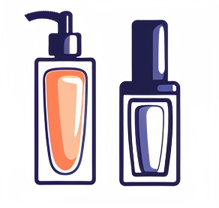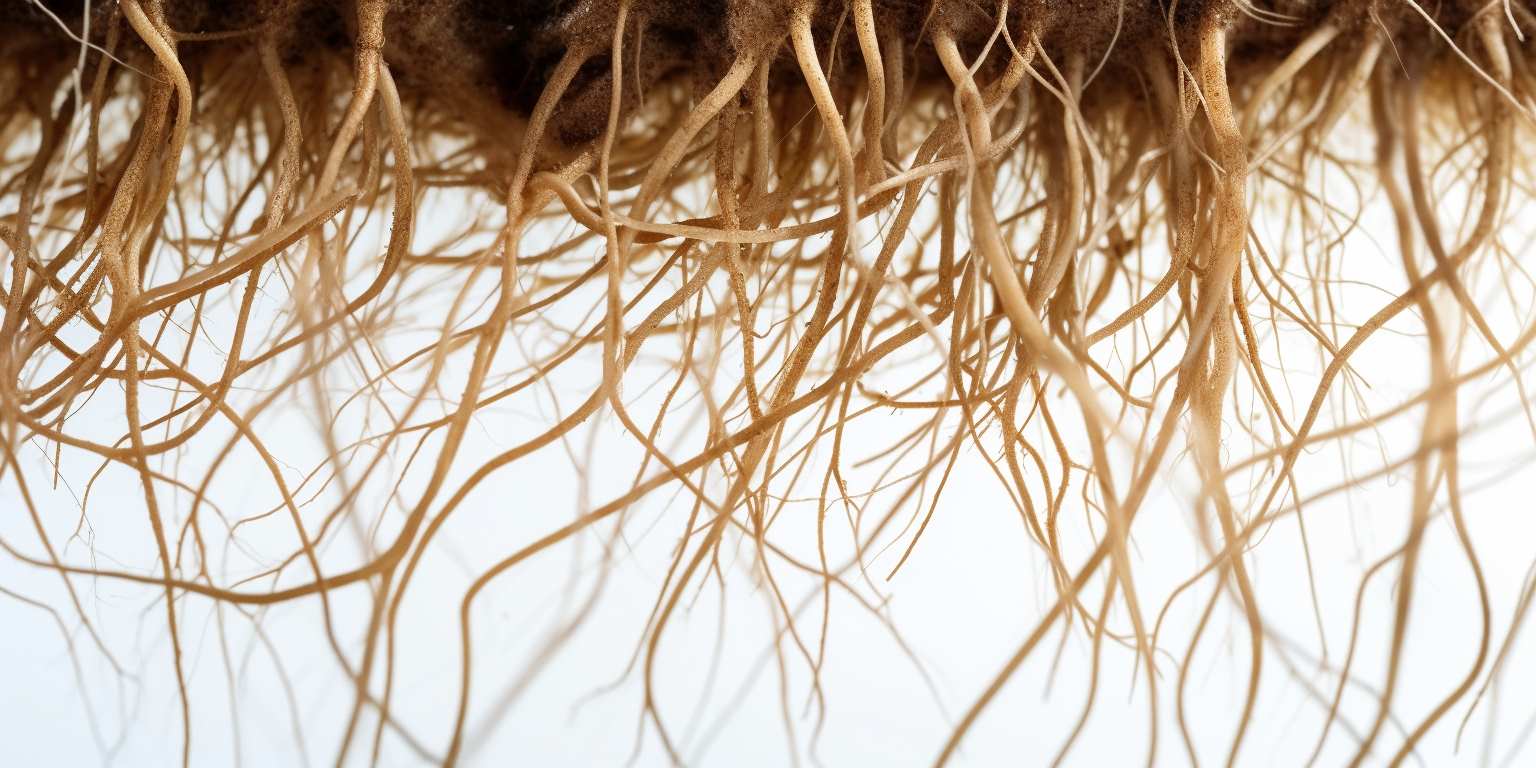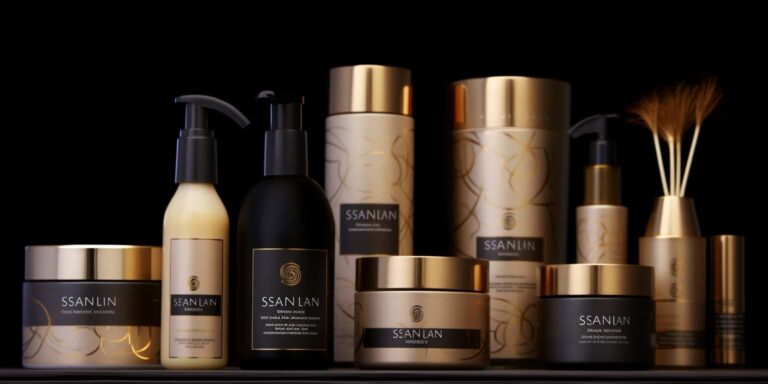Finding the best shampoo for hair loss prevention
Key Ingredients: Several ingredients have been clinically proven to promote hair health and combat hair loss. Look for shampoos containing biotin, a B vitamin crucial for strengthening hair follicles and preventing breakage. Caffeine is another powerhouse ingredient that stimulates hair growth by enhancing blood circulation to the scalp.
Furthermore, keratin plays a vital role in maintaining the structure of hair strands, making them more resilient to damage. Shampoos enriched with keratin can help fortify hair and reduce breakage, ultimately preventing hair loss.
Additional Considerations: Beyond specific ingredients, there are several factors to consider when choosing a shampoo for hair loss prevention. Opt for products that are sulfate-free as sulfates can strip the scalp of natural oils, leading to dryness and potential hair damage.
Moisturizing properties are also essential to keep the scalp hydrated and nourished. Look for shampoos infused with essential oils such as argan oil or coconut oil, which not only moisturize the scalp but also promote hair strength and shine.
Fragrance-free formulas are preferable, especially for individuals with sensitive scalps, as artificial fragrances can cause irritation and inflammation.
| Ingredient | Benefit |
|---|---|
| Biotin | Strengthens hair follicles |
| Caffeine | Stimulates hair growth |
| Keratin | Fortifies hair strands |
Hair regrowth stimulating shampoo: a closer look
In the world of hair care, the quest for a hair regrowth stimulating shampoo is akin to chasing a mythical elixir promising luscious locks and renewed confidence. With an array of products claiming to stimulate hair growth flooding the market, it’s essential to scrutinize their efficacy and ingredients to separate fact from fiction.
One of the key considerations when evaluating these shampoos is the active ingredients they contain. Among the most commonly touted ingredients are minoxidil, caffeine, and biotin. Minoxidil, a vasodilator, is believed to increase blood flow to the scalp, promoting hair growth. Caffeine, known for its stimulating properties, purportedly boosts circulation, while biotin, a B-vitamin, supports the production of keratin, a protein essential for hair health.
However, while these ingredients show promise in theory, their effectiveness can vary widely depending on the formulation and concentration used in the shampoo. Moreover, individual responses to these ingredients may differ, making it challenging to predict their impact accurately.
Another factor to consider is the mechanism of action of these shampoos. While some focus solely on improving scalp health and blood circulation, others claim to block DHT (dihydrotestosterone), a hormone linked to hair loss in both men and women. Understanding how a shampoo purportedly stimulates hair growth can help consumers make informed choices.
It’s also crucial to manage expectations regarding the results of using these shampoos. While they may help improve the overall health of the scalp and hair, they are unlikely to produce dramatic results comparable to medical interventions such as hair transplant surgery or prescription medications like finasteride.
Moreover, using a hair regrowth stimulating shampoo is just one aspect of a comprehensive approach to combating hair loss. Factors such as genetics, hormonal imbalances, stress, and diet can also play significant roles in hair health and growth.
Before investing in a hair regrowth stimulating shampoo, it’s advisable to consult with a dermatologist or trichologist to determine the underlying cause of hair loss and explore appropriate treatment options. Additionally, conducting thorough research, reading reviews, and considering the reputation of the brand can help steer consumers towards products that are more likely to deliver results.
Anti-hair fall treatment: comprehensive solutions
When it comes to anti-hair fall treatment, there’s no one-size-fits-all solution. It’s essential to understand the underlying causes of hair fall, which can range from genetics to lifestyle factors, before deciding on a course of action. Here, we’ll explore comprehensive solutions for anti-hair fall treatment, considering both conventional and alternative methods.
1. Conventional Treatments:
- Medications: Prescription medications like finasteride and minoxidil are commonly used to treat hair loss. Finasteride, also known as Propecia, is a medication that blocks the production of dihydrotestosterone (DHT), a hormone that contributes to hair loss. Minoxidil, on the other hand, is a topical solution that stimulates hair growth.
- Hair Transplant: For those with significant hair loss, hair transplant surgery may be an option. This involves transplanting hair follicles from one part of the scalp to another. It’s important to note that hair transplant surgery can be expensive and may require multiple sessions.
- Laser Therapy: Low-level laser therapy (LLLT) is a non-invasive treatment that has been shown to stimulate hair growth. LLLT devices are available for home use, making this an accessible option for many.
2. Lifestyle Changes:
- Diet: A balanced diet rich in vitamins and minerals is essential for healthy hair growth. Foods like leafy greens, nuts, and fish contain nutrients like biotin, vitamin E, and omega-3 fatty acids, which promote hair health.
- Stress Management: Stress can contribute to hair loss, so finding ways to manage stress is crucial. Techniques like meditation, yoga, and deep breathing exercises can help reduce stress levels.
- Scalp Care: Keeping the scalp clean and healthy is important for preventing hair loss. Regular shampooing and conditioning, along with gentle scalp massages, can promote blood circulation and stimulate hair growth.
3. Alternative Therapies:
- Herbal Remedies: Some herbs, such as saw palmetto and ginseng, are believed to have hair-strengthening properties. These can be taken in supplement form or applied topically.
- Essential Oils: Essential oils like rosemary, peppermint, and lavender are thought to promote hair growth. They can be diluted and applied to the scalp or added to shampoo and conditioner.
- Acupuncture: Acupuncture is an ancient Chinese therapy that involves inserting thin needles into specific points on the body. Some studies suggest that acupuncture may help improve hair growth by increasing blood flow to the scalp.
4. Professional Help:
- Dermatologist: If you’re experiencing significant hair loss, it’s essential to consult a dermatologist. They can help determine the underlying cause of your hair loss and recommend appropriate treatment options.
- Trichologist: A trichologist is a hair and scalp specialist who can provide personalized advice and treatment options for hair loss.
The role of natural ingredients in preventing hair loss
When it comes to combating hair loss, nature offers a treasure trove of solutions. Natural ingredients have long been revered for their ability to nourish the scalp, strengthen hair follicles, and stimulate growth. Let’s delve into the role of natural ingredients in preventing hair loss.
1. Essential Oils: These potent extracts are renowned for their therapeutic properties. Rosemary oil, peppermint oil, and lavender oil are among the top contenders for promoting hair growth. They improve blood circulation to the scalp, which in turn stimulates hair follicles to produce thicker, healthier strands.
2. Herbal Extracts: Nature’s pharmacy is rich in herbs that fortify hair and prevent breakage. Saw palmetto extract is particularly effective in blocking the enzyme responsible for converting testosterone into dihydrotestosterone (DHT), a hormone linked to hair loss. Nettle leaf extract is another herbal gem, packed with vitamins and minerals that nourish the scalp.
| Natural Ingredient | Benefits |
|---|---|
| Castor Oil | Moisturizes the scalp and promotes hair growth |
| Aloe Vera | Soothes scalp irritation and strengthens hair strands |
| Ginseng | Boosts hair follicle activity and encourages growth |
3. Nutrient-Rich Oils: Castor oil, coconut oil, and argan oil are hailed for their ability to moisturize the scalp and promote hair growth. These oils penetrate deep into the hair shaft, nourishing it from within and reducing the risk of breakage.
Success stories: before and after using hair loss shampoo
Many individuals struggle with hair loss, seeking solutions that can restore their confidence and rejuvenate their appearance. The journey to finding the right hair loss shampoo can be challenging, but success stories abound for those who have discovered the benefits of these specialized products.
Before delving into these success stories, it’s essential to understand the common experiences individuals face before using hair loss shampoo. Many people report feelings of frustration, embarrassment, and diminished self-esteem due to their thinning hair. Some may have tried various remedies or even undergone expensive treatments without achieving the desired results.
However, these challenges have not deterred individuals from seeking effective solutions. For many, the turning point comes when they decide to try a hair loss shampoo. These products are formulated with ingredients that target the underlying causes of hair loss, such as excess scalp oil, poor circulation, or follicle damage.
Now, let’s explore some success stories of individuals who have experienced remarkable transformations after incorporating hair loss shampoo into their routine:
| Name | Before | After |
|---|---|---|
| Emily | Thin, lifeless hair | Thicker, fuller hair with improved texture |
| Michael | Receding hairline and visible scalp | Significantly reduced hair loss and regrowth along the hairline |
| Sarah | Brittle, easily breakable strands | Stronger, more resilient hair with reduced breakage |
These success stories demonstrate the effectiveness of hair loss shampoo in addressing a variety of hair concerns. Whether it’s improving hair thickness, reducing hair loss, or enhancing overall hair health, individuals have experienced transformative results.
Moreover, the convenience and affordability of hair loss shampoo make it an attractive option for many. Unlike costly treatments or invasive procedures, using a specialized shampoo fits seamlessly into daily grooming routines without breaking the bank.
It’s important to note that while hair loss shampoo can yield impressive results, consistency is key. Continued use over time is necessary to maintain and maximize the benefits. Additionally, individual results may vary, so it’s essential to choose a shampoo that suits your specific hair type and needs.
Tips for maximizing the effects of your hair loss shampoo
If you’re dealing with hair loss, finding the right hair loss shampoo can be a game-changer. However, using it effectively is equally crucial. Here are some tips to maximize the effects of your hair loss shampoo:
1. Choose the Right Shampoo: Not all shampoos are created equal. Look for a shampoo specifically formulated for hair loss with ingredients like biotin, caffeine, and ketoconazole. These ingredients have shown effectiveness in promoting hair growth.
2. Consistency is Key: Using a hair loss shampoo sporadically won’t yield optimal results. Create a routine and use it consistently as directed. Most shampoos recommend usage at least 3-4 times a week for the best outcomes.
3. Wet Your Hair Thoroughly: Before applying the shampoo, ensure your hair is thoroughly wet. This helps in better lathering and distribution of the active ingredients across your scalp.
4. Massage Your Scalp: While applying the shampoo, don’t just focus on your hair. Gently massage your scalp using your fingertips. This stimulates blood flow and ensures better absorption of the nutrients.
5. Leave it on: Many people make the mistake of rinsing off the shampoo too quickly. Let it sit on your scalp for a few minutes. This allows the active ingredients to penetrate the hair follicles and do their magic.
6. Rinse Thoroughly: When it’s time to rinse, make sure to do it thoroughly. Residue from the shampoo can leave your hair looking dull. Proper rinsing ensures your hair is clean and free from any leftover product.
7. Use a Conditioner: While the shampoo is the star of the show, using a conditioner is essential too. It keeps your hair moisturized and helps prevent breakage, contributing to an overall healthier scalp.
8. Be Patient: Rome wasn’t built in a day, and the same goes for your hair. Results from hair loss shampoos may take time. Be patient and stick to your routine for a few months before expecting significant changes.
9. Watch Your Diet: A well-balanced diet contributes to the effectiveness of your hair loss treatment. Ensure you’re getting nutrients like vitamins A, E, and D, which are crucial for hair health.
10. Consult a Professional: If you’re not seeing the desired results, it’s wise to consult a hair care professional. They can provide personalized advice based on your specific hair loss situation.
Understanding the causes of hair loss and how to combat them
Hair loss can be a distressing experience for many individuals, impacting self-esteem and confidence. Understanding the underlying causes is crucial for effective combat. Genetics play a significant role in hair loss, with a strong familial predisposition. If your parents or grandparents experienced hair loss, there’s a higher likelihood that you might too.
Another key factor is hormonal changes. Both men and women experience hormonal shifts throughout their lives, such as during puberty, pregnancy, and menopause. The hormone dihydrotestosterone (DHT) is often responsible for hair follicle miniaturization, leading to hair thinning and eventual loss. Imbalances in thyroid hormones can also contribute to hair loss, emphasizing the interconnected nature of hormonal influences on hair health.
Environmental factors can take a toll as well. Excessive heat styling, use of harsh chemicals, and exposure to pollutants can damage the hair shaft and lead to breakage. UV radiation from the sun can weaken hair proteins, making strands more prone to damage. Adopting protective hairstyles and using products with UV filters can mitigate these effects.
Stress is a common culprit in hair loss. The body’s response to stress involves the release of cortisol, which can disrupt the hair growth cycle. Incorporating stress-reducing practices like yoga or meditation can positively impact hair health. Additionally, poor nutrition can contribute to hair loss. A deficiency in essential vitamins and minerals, especially iron and biotin, can lead to weakened hair strands. Including a balanced diet with nutrient-rich foods promotes overall well-being, benefiting hair health.
Alopecia areata is an autoimmune condition where the immune system mistakenly attacks hair follicles, causing hair loss. Understanding the role of the immune system in hair health is crucial for developing targeted treatments. Advances in hair transplant technology offer effective solutions for restoring hair in areas affected by alopecia areata, providing hope for those experiencing this condition.







